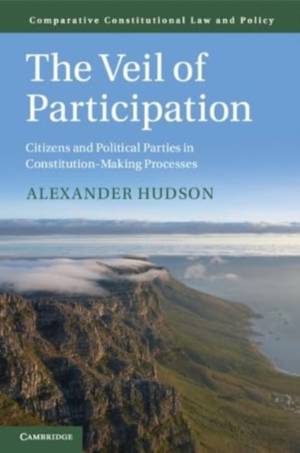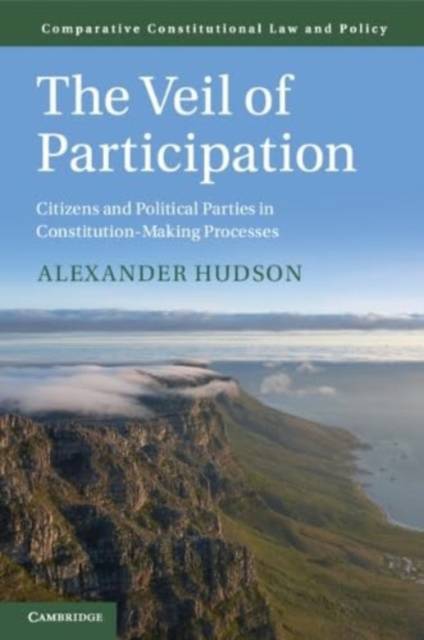
Door een staking bij bpost kan je online bestelling op dit moment iets langer onderweg zijn dan voorzien. Dringend iets nodig? Onze winkels ontvangen jou met open armen!
- Afhalen na 1 uur in een winkel met voorraad
- Gratis thuislevering in België vanaf € 30
- Ruim aanbod met 7 miljoen producten
Door een staking bij bpost kan je online bestelling op dit moment iets langer onderweg zijn dan voorzien. Dringend iets nodig? Onze winkels ontvangen jou met open armen!
- Afhalen na 1 uur in een winkel met voorraad
- Gratis thuislevering in België vanaf € 30
- Ruim aanbod met 7 miljoen producten
Zoeken
The Veil of Participation
Citizens and Political Parties in Constitution-Making Processes
Alexander Hudson
€ 50,45
+ 100 punten
Uitvoering
Omschrijving
Public participation is a vital part of constitution-making processes around the world, but we know very little about the extent to which participation affects constitutional texts. In this book, Alexander Hudson offers a systematic measurement of the impact of public participation in three much-cited cases - Brazil, South Africa, and Iceland - and introduces a theory of party-mediated public participation. He argues that public participation has limited potential to affect the constitutional text but that the effectiveness of participation varies with the political context. Party strength is the key factor, as strong political parties are unlikely to incorporate public input, while weaker parties are comparatively more responsive to public input. This party-mediation thesis fundamentally challenges the contemporary consensus on the design of constitution-making processes and places new emphasis on the role of political parties.
Specificaties
Betrokkenen
- Auteur(s):
- Uitgeverij:
Inhoud
- Aantal bladzijden:
- 239
- Taal:
- Engels
- Reeks:
Eigenschappen
- Productcode (EAN):
- 9781108793513
- Verschijningsdatum:
- 18/04/2024
- Uitvoering:
- Paperback
- Formaat:
- Trade paperback (VS)
- Afmetingen:
- 152 mm x 229 mm
- Gewicht:
- 326 g

Alleen bij Standaard Boekhandel
+ 100 punten op je klantenkaart van Standaard Boekhandel
Beoordelingen
We publiceren alleen reviews die voldoen aan de voorwaarden voor reviews. Bekijk onze voorwaarden voor reviews.











